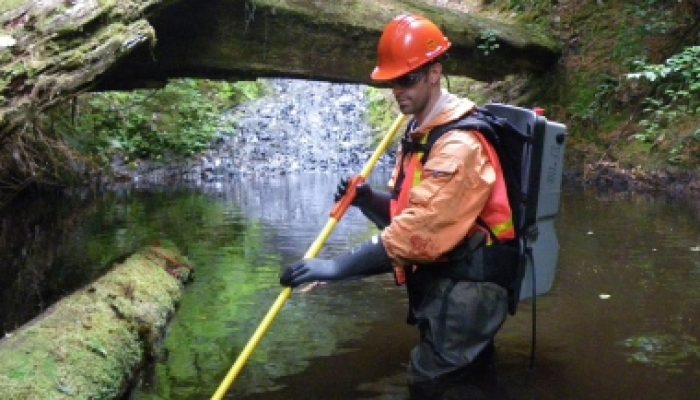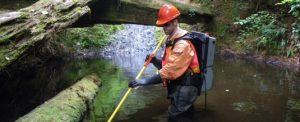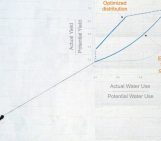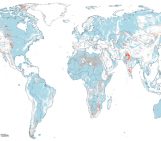
Hydrogeologists are a diverse group, in part because we come to this discipline from so many different paths. We come from different academic programs in engineering, geological sciences and environmental sciences. These differences in backgrounds create a diversity of perspectives, which enriches hydrogeology and allows for dynamic collaborations. Engineers and geophysicists are known for bringing quantitative skills to hydrogeology, while geologists shine in problems involving stratigraphy, structural geology and embrace uncertainty. Geochemists and environmental scientists are often stronger in contaminant hydrogeology. However, each of these backgrounds also have their deficiencies. This is underscored by looking at programs in civil engineering and geology, which are two of the most common undergraduate degrees among hydrogeologists. Aside from foundational math and science courses the first years of these programs, they usually only share an elective course in hydrogeology. A review of hydrogeology courses covered by Gleeson et al. (2012) showed that aside from a few topics, these courses vary substantially in their content.

Hydrogeologists are often found crossing streams wearing ghost-buster backpacks (or so it seems from here)
This is further complicated by how professionals are licensed in many jurisdictions, which is often based on these academic programs rather than whether someone has the capacity to practice hydrogeology. Engineers are required to have engineering fundamentals in areas such as statics, dynamics, and engineering design, along with competency is areas such as structural and transportation engineering for civil engineering. Geologists receive professional registration based on core competencies in subjects such as mineralogy, sedimentology, paleontology and structural geology. Registration for fields more closely aligned with hydrogeology, such as environmental geoscience and geological engineering may consider hydrogeology as a core requirement. In general, this means that somebody registered as a professional engineer or geoscientist might be a hydrogeologist but they also may have very little knowledge of hydrogeology. Environmental scientists and similar fields might be better prepared to practice hydrogeology in some instances but professional registration is not as common.
Maybe this involves graduate school? Many practicing hydrogeologists have advanced degrees. These programs are often designed to give a broad base in hydrogeology and typically deliver material in:
- physical hydrogeology
- chemical/contaminant hydrogeology
- geochemistry
- numerical modeling
- field techniques
Additional material on porous media, geotechnical engineering and hydrology are frequently also covered. Anyone with a background in these areas is probably a hydrogeologist. However, there are still some grey areas. Can someone who doesn’t understand numerical models be a hydrogeologist? What about someone who has never done field work? Where to draw the line is unclear and may differ substantially based on who is asking the question. However, if the goal is to promote competent practitioners and researchers in hydrogeology, the traditional paths through engineering and geoscience may be less than ideal. The requirement of knowledge outside hydrogeology at the expense of core knowledge may be holding us back. On the other hand, a great number of us did not enter university with the goal of becoming a hydrogeologist and maybe we need these more traditional programs as gateways.

What most hydrogeologists working really looks like (from here)




Jordan Curry
It’s fascinating as to how many different backgrounds of science that practicing hydrogeologists come from. The different collective viewpoints would bring a new way of doing certain processes, and varying programs of knowledge. Although, there are differences in schools of thought that an engineering geologist would have.